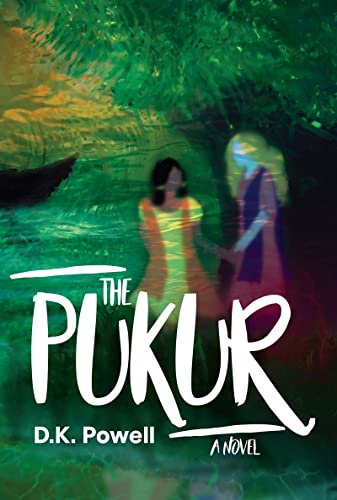
“A brilliant, prophetic novel…but not perfect.”
In the 70s and 80s I was an absolute confirmed sci-fi freak and loved, not just the new stuff akin to my age at the time – like Star Wars and Star Trek – but also all the old classics such as Asimov, Anne McCaffrey and so on. Despite all this, somehow the name of William Gibson entirely passed me by until literally last year when a good friend (who happens to have an excellent and equally eclectic taste in books) suggest a selection of his books to me.
Knowing what I know about Gibson now, I don’t understand how this can be. He seems to be one of those oddities that ‘those in the know’ revere and is hugely influential, yet the general media seem to have entirely forgotten. Gibson himself was a somewhat nervous writer, nearly ditching Neuromancer altogether after the movie Blade Runner came out as he feared everyone would think he had just copied it. Parts of the novel were seriously rewritten; I suspect he agonised over this work more than most writers do over their precious babies.
The agonising was worth it and the result was a book that would have a direct influence on sci-fi literature for decades to come. The Matrix movies series could not have existed without Gibson. The book is very much a combination of these movies and the aforementioned Blade Runner movie, despite being published between the two.
Considering the publication date of 1984 when computers were still very much in their infancy, the novel is almost prophetic. Not only does Gibson very much foresee a computerised world not dissimilar to what we have now, but he tells of a virtual world we’re on the verge of becoming a part of our ordinary lives and an AI-dominated world we’re all slightly nervous about that isn’t too far away either. Considering that world governments are suddenly talking about laws controlling AI and defining what it means to be sentient, we can be sure that this area of technology has come on a lot further than said governments are telling us. Gibson foresees sentience in this novel as the protagonist, a computer hacker called Case, finds himself ‘commissioned’ to unite two AI programs. Doing so could be calamitous as both are immensely powerful. Unlike Asimov’s Robots however, these AI are not prevented from killing.
A brilliant, prophetic novel then. Yes, but not perfect. There’s a definite style change that occurs somewhere near the middle. Initially, I found Gibson’s use of similes and metaphors excruciating. There was a period of time where old clichéd expressions were frowned on and writers were encouraged to invent new ones. I hated it and could never bring myself to do it. Gibson is proof of why I wasn’t wrong. His book reads like some trashy pulp fiction detective novel for many pages, gushing with silly phrases trying to look cool. Eventually though, the style changes and he stops with the dreadful metaphors. Thankfully.
Another issue is that the continuous toing and froing between the real world and the virtual (which can appear almost the same as the real, at times) makes it very confusing to have a clue what the hell is going on. I will confess, there were a couple of times when I went to Wikipedia to check the plot of the story – just far enough to reach where I was at in the book so I didn’t get spoilers (I hate spoilers) – to confirm I had got the right end of the stick. From experience, I’ll tell you that you don’t want to try reading this book at night, when you feel sleepy. It is an hallucinogenic experience.
Still, once past the daft metaphors and with plot checked to make sure I wasn’t insane, I did enjoy the book. It’s a cracking yarn with just the right mix of futuristic philosophising and actual action. In the best tradition of sci-fi, this book makes you think about the real world as it transports you to another. Do I care about the characters? I think so. For sure, I have the sequel, Count Zero, on my desk ready to begin. But it will be a little while before I get to it. Make of that what you will.
My Verdict:

Social Entrepreneur, educationalist, bestselling author and journalist, D K Powell is the author of the bestselling collection of literary short stories “The Old Man on the Beach“. His first book, ‘Sonali’ is a photo-memoir journal of life in Bangladesh and has been highly praised by the Bangladeshi diaspora worldwide. Students learning the Bengali language have also valued the English/Bengali translations on every page. His third book is ‘Try not to Laugh’ and is a guide to memorising, revising and passing exams for students.
Both ‘The Old Man on the Beach’ and ‘Sonali’ are available on Amazon for kindle and paperback. Published by Shopno Sriti Media. The novel,’The Pukur’, was published by Histria Books in 2022.
D K Powell is available to speak at events (see his TEDx talk here) and can be contacted at dkpowell.contact@gmail.com. Alternatively, he is available for one-to-one mentoring and runs a course on the psychology of writing. Listen to his life story in interview with the BBC here.
Ken writes for a number of publications around the world. Past reviewer for Paste magazine, The Doughnut, E2D and United Airways and Lancashire Life magazine. Currently reviews for Northern Arts Review. His reviews have been read more than 7.9 million times.
Get a free trial and 20% off Shortform by clicking here. Shortform is a brilliant tool and comes with my highest recommendation.




Leave a comment